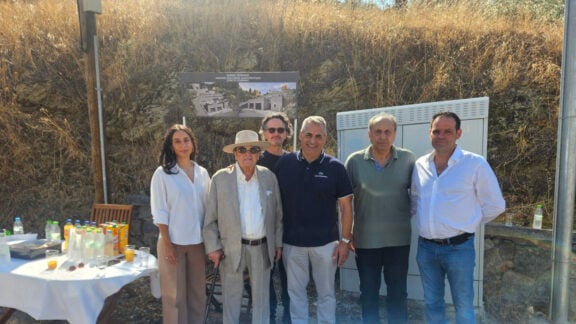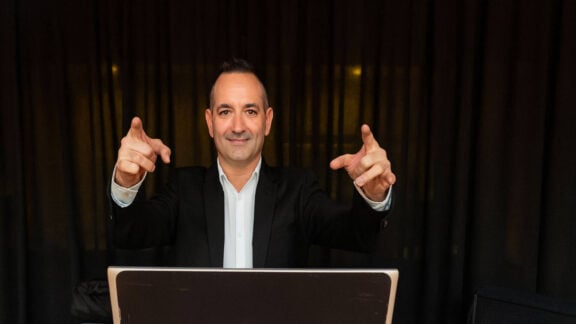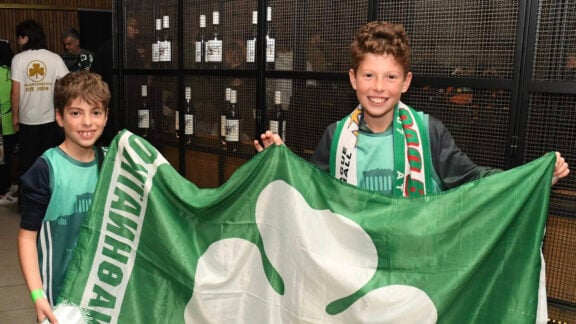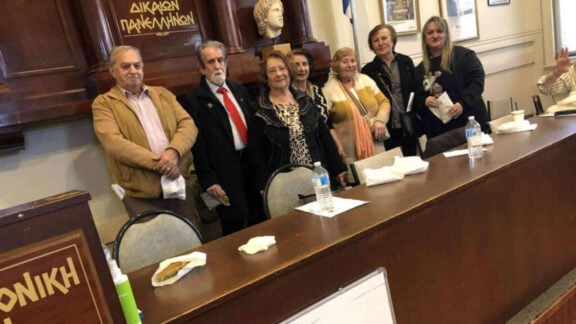Dressed in their distinctive uniforms and standing at full attention, one of the duties of the Greek Presidential Guard or Evzones is to maintain a round the clock vigil at the Tomb of the Unknown Solider in front of Parliament House, Athens. A simple enough task one might imagine, but the highly stylised walk during the choreographed ‘Changing of the Guard’ demands an ability to raise their legs to shoulder height while balancing a 12-kilo M1 rifle tipped with a bayonet and wearing nail-shod leather clogs that can weigh 1.5 kilos each. Then there is the duress of adverse weather conditions, over-enthusiastic tourists, and even riotous demonstrations – including, on at least two occasions, exploding Molotov cocktails. Yet Evzones famously remain unflinching at all times and will not stand down unless ordered to do so.
Understandably, these formidable challenges deter many from wanting to join this elite military unit. It is somewhat of a surprise, therefore, to learn that among the Evzones is a 23-year-old Greek Australian who deferred his higher education in the UK specifically to return to Greece to try out for the Evzones.
Although Jason Robertson was born and lived in Greece as a child, he grew up in a family entirely Anglo-Saxon in nature and has spent all his adult life in the UK. He recently completed an undergraduate degree in London, attended a summer course at Harvard Business School in the US, and, if financing can be found, will be returning to do a master’s degree at CASS City University, London in September. Although national service is compulsory for Greek males, he is somebody who could have easily avoided serving in the military, and yet was inspired to become an Evzone because of what they are and represent.
Wanting to become a member of the Presidential Guard can easily be a dream too far. As is well-known, there is a height requirement (more than 1.87 m) and the selection procedure is extremely rigorous. Of all the recruits conscripted into the Greek Army each year, only around 1 per cent are ever chosen. The internal training regime is so difficult that of those selected, no more than half ever have the honour of wearing the white kilt (400 hundred pleats representing 400 years of Ottoman occupation) and tailor-made clogs. Then there is the self-discipline and absolute dedication required to actually perform ceremonial duties, whether it be for the general public or visiting dignitaries, come rain or shine, day or night. Moreover, there is absolutely no financial incentive involved. Despite their onerous responsibilities and what they symbolise for the nation they serve, Evzones only make standard conscript pay of about €7 – or just AU$10 a month.
So why is Jason’s story important? It is a sad fact that we live in an era in which the young are often unengaged and therefore largely disenfranchised from their potentials. The distractions of such things as online gaming and social media, in combination with high youth unemployment and bleak job prospects brought on by an ever-deepening financial crisis have produced a generation of Greeks in limbo. The worst thing is that this apathy is self-sustaining. Robbed of targets and hope, today’s youth are in danger of remaining unfulfilled and unproductive as they grow old in a society that appears to have lost its sense of purpose.
In such discouraging and disorienting times, Jason found purpose in the Greek ideal and its proud history. While the obligation of military service is something that most others of his age have come to either despise or try to avoid, he is among the few who regard it as a constructive learning experience. Indeed, he is honoured to wear a uniform that means so much and to have the opportunity to do his duty as a Greek citizen. And this is something of a paradox. Raised with Anglo-Saxon principles and having spent his adult life abroad, he is one of a select few representing Greece in the Greek Independence Day Parade and celebrations on 5th Avenue in New York this year. Along with his fellow Evzones, he epitomises the essence of what it is to be Greek – proud and determined, capable and resilient – the very ideals that founded the western world but are ashamedly under threat today, especially in Greece. It is therefore hoped that perhaps in some small way, his story can restore inspiration in those who have seemingly lost their way.






